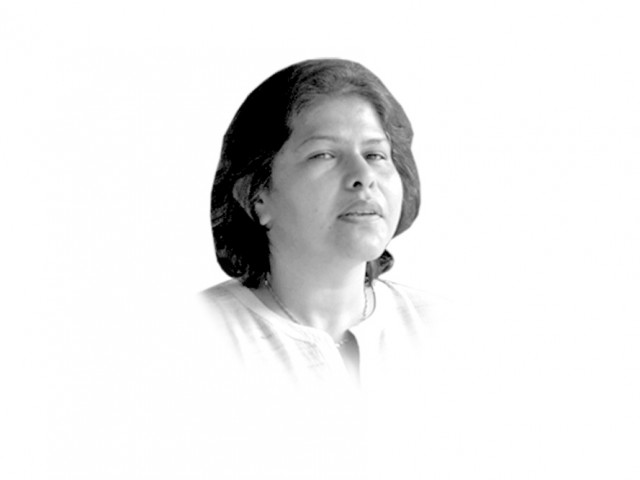Looking for a new chief
That the PM could not revive the Cabinet Committee for Defence and created the NSC speaks volumes of where power lies.

The writer is an independent social scientist and author of Military Inc.
But there is also the possibility that the government might be checking the temperature of how would people react to such news. After all, one of the media group is reputed to be close to the hearts of the Sharif brothers. It is also noteworthy that since Prime Minister Nawaz Sharif’s initial announcement to follow the principle of seniority in appointing senior commanders, a gentle whispering sound could be heard in policy-making circles and the larger strategic community. Thus far, there doesn’t seem to be a consensus on any of the names even within the military, which seems to open up possibilities for individual generals to campaign for themselves. Some of the present contenders whose names have come up include Corps Commander Lahore, DG ISI and the Corps Commander Mangla. The army is certainly in no mood to let go of the position of the CJCSC to a junior service, especially after certain critical areas were added to the CJCSC mandate under the Musharraf regime. However, if Nawaz Sharif’s intention was to set the civil-military balance right, then he has to act the constitutional boss rather than the dummy, who will rubber-stamp a decision or get pushed around by powerful groups within GHQ. He already seems to be backing down in certain areas as demonstrated by creating the National Security Council (NSC), which puts the top military brass at par with the civilian leadership.
The NSC decision is not constructive for a positive civil-military balance in the long run. Despite more civilians on the Council, the fact that the military dominates information and intelligence and is a key political player will enable it to dominate the decision-making. The fact that Nawaz Sharif could not put life into the Cabinet Committee for Defence and created the NSC instead speaks volumes of where the power lies at the moment. Sources suggest that making of the national security strategy and counter-terrorism policy were outsourced to the National Defence University team or someone in the GHQ. This indicates a weakening of resolve to turn the civil-military balance around. It will certainly make a lot of sense if the prime minister would review his personal policymaking behaviour and that of his party. The fact that he has kept the defence portfolio to himself without engaging with a team that could advise him or guide him in his interactions is just one of the issues. The other is a more generic problem within the PML-N of over-centralised decision-making, which is weakening institutions around the government, especially those that could strengthen it in combating terrorism or even making a counterterrorism policy. The Sikandar fiasco is a reminder of many ills but particularly the problem of over-centralised policymaking. The interior minister controlled a matter that could be handled by a senior police officer. The police sadly appeared to be impotent due to pressure from both the government and the judiciary that has contributed in bringing the state bureaucracy to a halt. Punjab is full of cases where police either kill criminals in fake encounters and earn the confidence of the chief minister or do not act against jihadis and terrorists at all out of fear of the military, judges and the CM.
In any case, the policy on counterterrorism is being made in secrecy with an initial leak to the press. These are issues that need greater consultation at several levels, which the government does not seem to be doing. The prime minister must remember that bringing structural reforms and strengthening consultation is critical for policymaking. There are those who had voted for him thinking that he will show greater nerve in improving the civil-military balance on which depends a lot of other strategic issues. Such odd leaks mentioned above weaken rather than strengthen the government. Notwithstanding the threats, he has to move to take ownership of national security policymaking and appointing senior commanders.
Published in The Express Tribune, September 5th, 2013.
Like Opinion & Editorial on Facebook, follow @ETOpEd on Twitter to receive all updates on all our daily pieces.















COMMENTS
Comments are moderated and generally will be posted if they are on-topic and not abusive.
For more information, please see our Comments FAQ